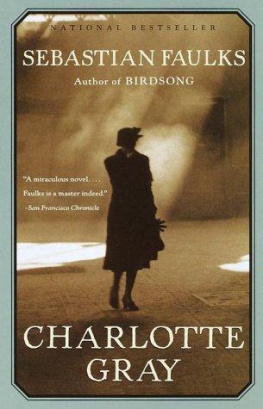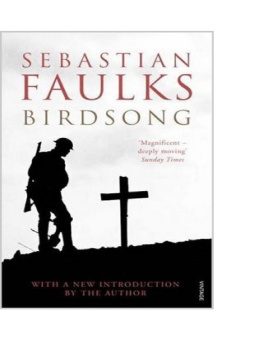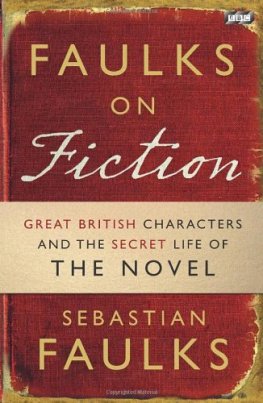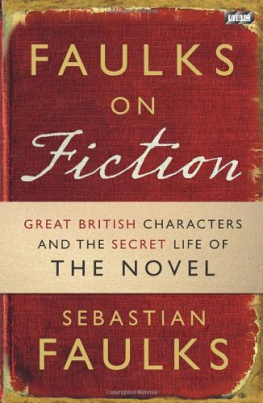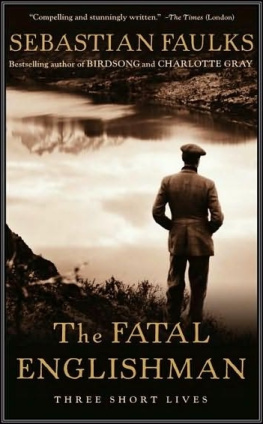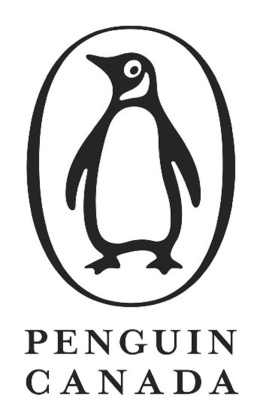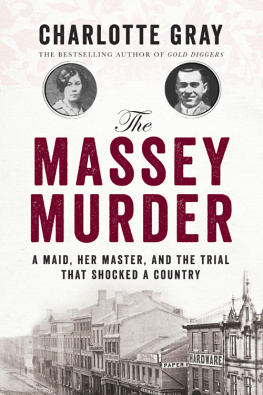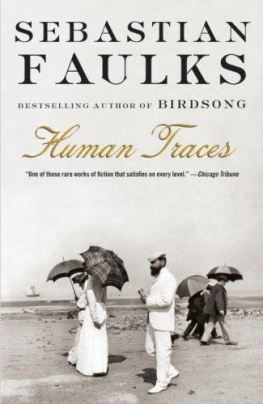PART FOUR
1943
Andre Duguay ran down the stairs when he heard Mlle Cariteau's urgent call. It was six in the morning. In the kitchen was the nice young woman who sometimes came to visit them and read stories. Andre smiled briefly at her, then turned his eyes to the floor. Mlle Cariteau attacked his face with a cloth from the sink while he grimaced and tried to wrench his head away.
"We're going to say goodbye," said Mlle Cariteau.
"For a few days you're going to another house, just for a holiday."
"It'll be nice," said Charlotte.
"You're going to be on a farm with animals, you and Jacob. Would you like that?"
"No," said Andre.
"I don't want to."
The two women set about trying to persuade him, by painting pictures of outdoor life with dogs and chickens and games in old barns. Andre felt suspicious of both.
"I don't want to leave, I like it here."
"And Jacob's coming too," said Charlotte.
"You'll have wonderful games together. Then you can come back later and visit."
Andre, who had seemed to be on the point of acquiescing, suddenly shook his head.
"I want my mother. I want to know where she is." Charlotte said gently,
"Andre, there really isn't any choice. Soon this war will be over. Things are beginning to happen. And soon, when it's finished, you will see your parents again. I'm sure you will.
But just for the time being it would be better if you do what we ask. Trust me."
Andre was beyond the reach of reason; he felt he had been trusting enough already, and still his parents were not there. His small, muscular body set itself in resistance to all these adult plans; he grasped the edge of the chair next to him and began to wail his defiance.
Mlle Cariteau said, "I'll go and get the little one."
In the middle of the previous night, Andre had heard a hammering on the kitchen door, then the sound of voices. He crept to the top of the stairs and through the banisters was able to see Madame and Mlle Cariteau talking urgently to the young woman, Madame Guilbert. As a result of their conversation, he and Jacob had been pushed up into the attic for the night and told to sleep on a pile of old blankets. They clung to one another for warmth in an unaccustomed embrace. Sylvie Cariteau returned to the kitchen with a suspicious Jacob and the suitcase the boys had once used for tobogganing downstairs. It now held a few clothes Sylvie had managed to extract one evening from the Duguays' house, the tin soldiers that Julien had brought, the book about the crocodile who lost her egg, an old adjustable spanner of which Andre had become fond and one or two other small objects of mysterious but intense private significance.
"Listen," she said, 'a friend is coming to pick you up later in the morning and take you to the farm. I just want you to say goodbye to Madame Guilbert now." Madame Cariteau appeared in the kitchen and, seeing that Andre was upset, clasped him against her bosom, where he breathed in the old sour smell of her and felt the heat of her embrace, which once had reassured him, being soft and vaguely female, but now seemed only to emphasise the extent to which she was not his mother.
The night before, Charlotte had arrived, dripping wet, from the Domaine and woken the Cariteaus with her knocking. After she had explained the situation to Sylvie and they had moved the boys to the attic, they sat at the kitchen table and tried to decide what to do with them.
"I think our best chance is Pauline Benoit," said Sylvie. Charlotte remembered what Julien had said.
"Isn't she a Gaullist?"
"Does that matter?"
"Maybe not." Charlotte wanted to say as little as possible.
"She's a kind woman. She'd certainly want to help two children." When Charlotte left Sylvie Cariteau and bicycled off, as instructed by Julien, to the monastery, Sylvie went quietly through the dark streets to rouse Pauline Benoit. Initially resentful at being woken, Pauline was intrigued by the plight of the boys and amazed at how successfully Sylvie Cariteau had concealed them.
"I can't have them here," she said.
"Obviously. Especially now with Monsieur Levade in difficulty. This is the first place they'd look. We want to get them out of the village.
There is one person I can think of. I don't know her very well, but..."
"Who is it?"
They were sitting by candlelight in Pauline's small front room.
"Wait a minute. Let me think."
Eventually she said, "Yes, I think it'll work. She's called Anne-Marie. She sits as a model for old Monsieur Levade. Her father has a farm about twenty minutes from here. He knows how to keep his mouth shut. God knows, he's got enough to be discreet about."
"Are you sure they'll co-operate?" said Sylvie Cariteau. "I'm pretty sure. We can always offer to pay them. And the boys will be much better off on a farm. They might even get some eggs. I'll take Gastinel's van and go and see them. I'll be back by dawn."
Julien Levade was not a particularly strong man, but he was younger and bigger than the German soldier guarding him, and in the struggle that followed Charlotte's departure he had more reason to fight. With his arm round the German's throat he said, "Put down your gun and I won't hurt you." His words meant nothing to the other man, who continued to wriggle in Julien's embrace and to thrash out with his elbows. It was so long since he had fought as a boy, playground disputes with trembling lips where the loser was the child who cried, that Julien could barely remember how to go about it. There was a repellent intimacy about the other's man hair against the skin of his face. Julien held a forearm across the German's throat and locked one hand with the other to increase the grip; in this way, he was able to pull him slowly backwards to the floor, while he retreated step by step to make room. As the German finally lost balance, Julien was obliged to let go, at which moment he kicked out at the rifle the other man still clutched in his right hand. He watched it slide a few feet over the bare floorboards. He drove his heel as hard as he could into the German's ribs and, while the man gasped, he was able to dive across and grab the gun himself, then scuttle over the floor on all fours and turn round, kneeling to face his enemy with the rifle in his hand.
The German levered himself into a sitting position, in which all soldierly pretence fell away. Panting and snorting from his exertion, he placed his hands together and prayed Julien not to shoot.
Julien stood up slowly and walked back towards the door. Now that he had gained control, he still faced the awkward question of what to do with the man. He could tie him up, but with what? He could shoot him, but really he wished him no harm. As his tearful imprecations made clear, he was just a pathetic creature, caught in a job he did not want, anxious to return to the children he had left behind and whose photographs he was now, to Julien's embarrassment, fumbling to produce from a wallet.
Perhaps he should just shoot him in the leg, to disable him. Really, these were considerations of war of which his own activities had as yet given him no experience. But there was no use being squeamish, he thought.
"Take your clothes off," he said.
The German looked at him, head on one side, striving to understand. His thinning hair had been tousled by the struggle, and a single long strand hung down over his ear; his face was flushed and looked exhausted in the shadows and pouches of his incipient middle age.
Julien mimed what he meant and the German, in ecstatic relief at having understood his captor's wish, did his best to please him.
"More." Julien gestured with his rifle. The pile of clothes mounted by his ankles, and when he was naked Julien pointed to the door.
Shivering, and no longer pleased, the German soldier walked across the room, his eye on the barrel of the gun as Julien retreated to one side to let him pass. Down the corridor of the first floor they went, past the door of Levade's studio, the man's white buttocks a dim beacon in the darkness. At the top of the stairs Julien stuck the tip of the rifle into his back to remind him that he was serious and kept it there as they groped their slow way down.

